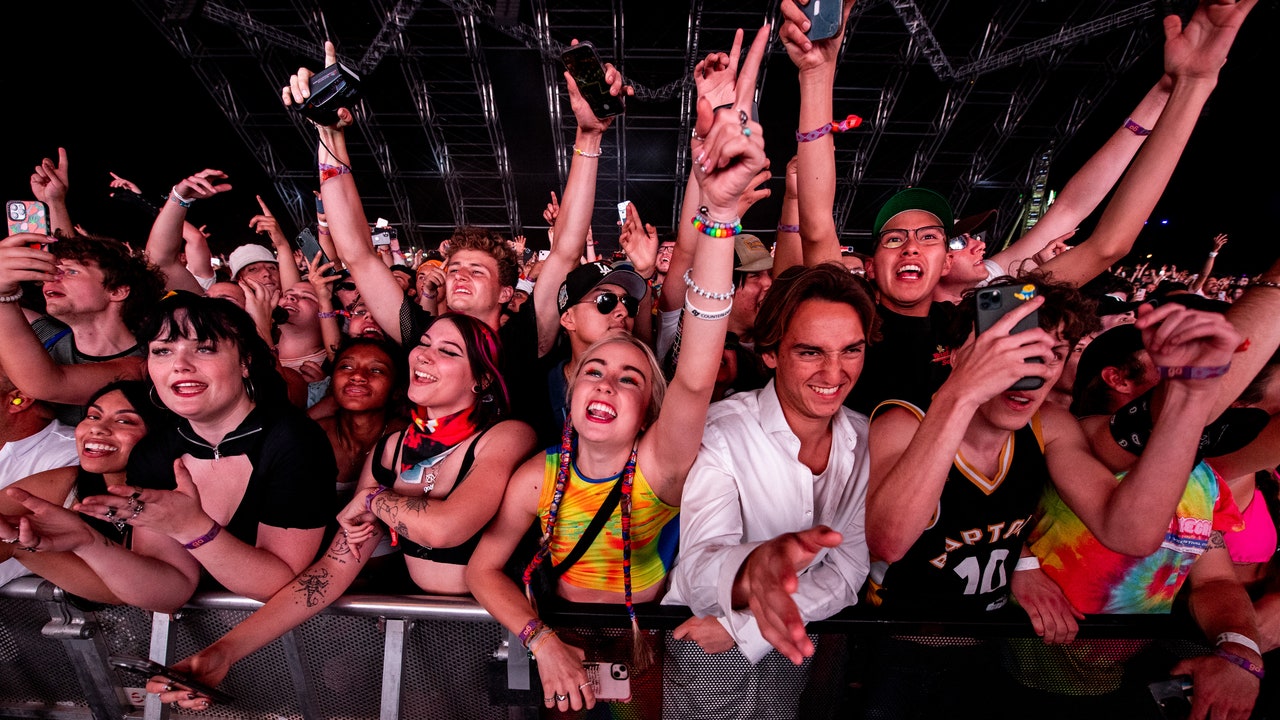Sean Carmis’ packing list for a Coachella weekend includes snacks, a phone charger, sunscreen, a change of clothes, and a bandana to keep the desert dust off his face. Plus a blood tester, a cannula, a tube to drain fluids, an infusion set for insulin injections, dry ice to keep his medication refrigerated in the valley heat, and syringes in case his insulin pump breaks down. Carmis, 26, has attended Coachella five times, with a sixth on the horizon. As a diabetic with adrenal disease and other chronic conditions, he has to factor in weekend plans that healthy festival-goers don’t. The festival, he says, isn’t designed with people like him in mind.
Surveys show that 40% of Americans have a chronic illness or disability, yet few concert venues and multi-day music events are designed to accommodate the needs of these attendees. When it comes to the famous Coachella music festival in Indio, California, known for its heat, camping and crowds, people with chronic illnesses or disabilities may wonder if they can find a way to enjoy the festival.
While the festival appears to be making great strides in terms of accessibility, including programs aimed at improving accessibility for BIPOC people with chronic illnesses and disabilities, some festival-goers say there is still much work to be done. Teen Vogue has reached out to Coachella for comment.
While at Coachella last year, Kilmis had to visit one of the medical tents set up around the festival. He arrived at one of the tents when his blood sugar was low. Medical staff gave him a juice box and had him sit down while they examined him.
But that same weekend, Kirmis faced a problem that wasn’t so easily solved: His brother, who is also diabetic and chronically ill, had his insulin pump break during the headlining concert on Sunday. The brothers went to the medical tent for help, but Kirmis says the tent they went to had no insulin or syringes. This surprised him, given the prevalence of diabetes. About 11 percent of Americans have one of two types of diabetes, and 8.4 million use insulin to manage their diabetes. “We had to share our insulin pump for the rest of the day,” Kirmis recalls. Though he’d attended the festival many times before, he says he learned something new that night: don’t rely on the medical tent, and always bring extra syringes in case your insulin pump breaks.
“A lot of people feel like their illness prevents them from enjoying these experiences,” Kirmis said. “I’ve managed to get by, but I need to be more prepared.” [from festival organizers] “It’s going to make a big difference for me. I’m looking forward to it this year, especially being ready.”
Olivia Chambers, 26, went to Coachella for the first time in 2018. As an autistic person, she found the festival a bit overwhelming. “The heat, the frequency of the sounds coming from the speakers, and the amount of walking… [sensory] “At the end of every night I’m burnt out,” she explains.

